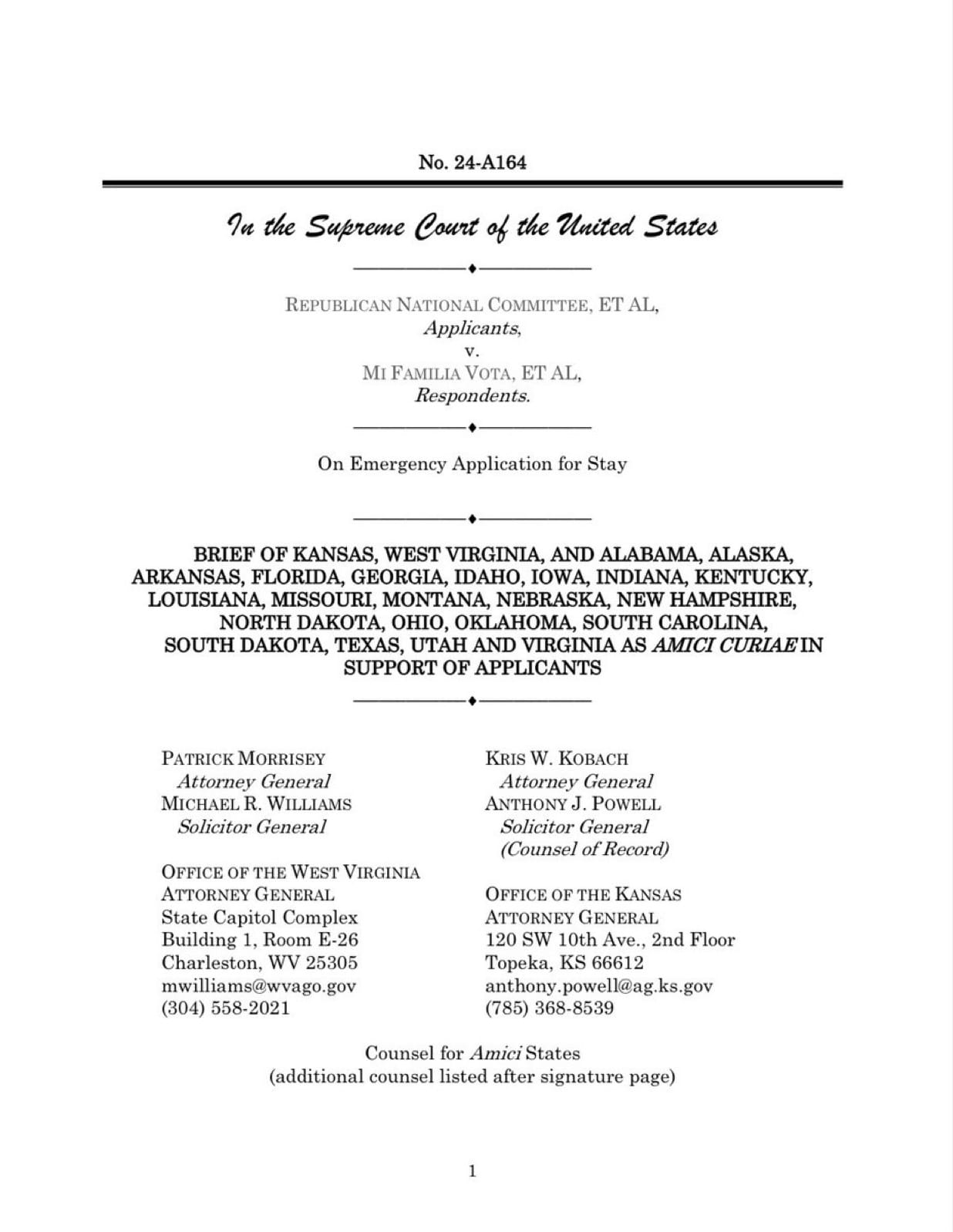24 States Rally Behind Arizona in Supreme Court Battle Over Voter Citizenship Proof
In a significant move that could reshape voting laws across the nation, a coalition of 24 states has filed an amicus brief with the U.S. Supreme Court, supporting Arizona's controversial law requiring proof of citizenship for voter registration. This legal action marks a pivotal moment in the
In a significant move that could reshape voting laws across the nation, a coalition of 24 states has filed an amicus brief with the U.S. Supreme Court, supporting Arizona's controversial law requiring proof of citizenship for voter registration. This legal action marks a pivotal moment in the ongoing debate over election integrity versus voting rights.
The Arizona law in question, which has been a point of contention for years, mandates that individuals provide documentary evidence of their U.S. citizenship when registering to vote. This requirement has been at the center of legal battles, with arguments focusing on whether such a law infringes on federal voting rights or is necessary to prevent non-citizens from participating in elections.

The coalition's brief argues that upholding Arizona's law is crucial for maintaining the integrity of the electoral process. They assert that ensuring only U.S. citizens vote is fundamental to the democratic process, citing potential risks of non-citizen voting as a justification for stricter registration requirements.
Key Points from the Brief:
- Election Integrity: The states argue that verifying citizenship is a reasonable measure to safeguard elections from potential fraud by non-citizens, which they claim could undermine public trust in the voting system.
- Federal vs. State Rights: The brief touches on the balance between federal voting laws and state rights, suggesting that states should have the authority to implement additional safeguards beyond what federal law requires.
- Public Confidence: There's an emphasis on how such laws could restore or maintain public confidence in the electoral process, especially in light of recent election controversies.
However, critics of the law, including civil rights groups and some legal scholars, argue that it could lead to voter suppression, particularly among naturalized citizens, the elderly, or those without easy access to documentation. They contend that the federal voter registration form, which requires an attestation of citizenship under penalty of perjury, should suffice, pointing out that instances of non-citizen voting are exceedingly rare.
The Supreme Court's decision on this matter could set a precedent for how states manage voter registration, potentially leading to a wave of similar laws across the country if upheld, or reinforcing the national standard if struck down. This case not only highlights the tension between state and federal authority over elections but also underscores the broader national conversation on what measures are necessary or excessive in ensuring the sanctity of the vote.
As the nation watches, the outcome of this case could significantly impact how future elections are conducted, balancing the need for election security with the accessibility of voting rights.




